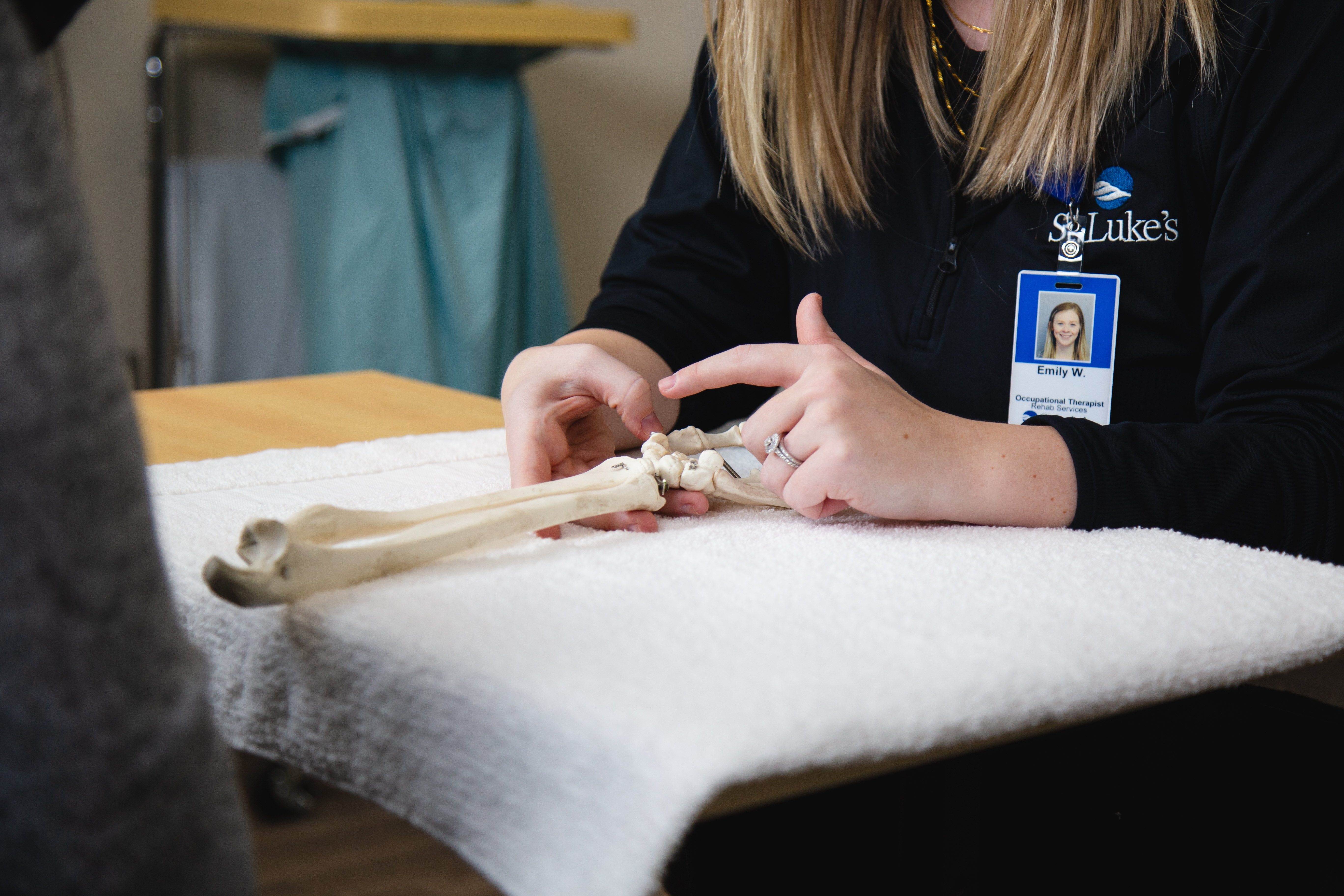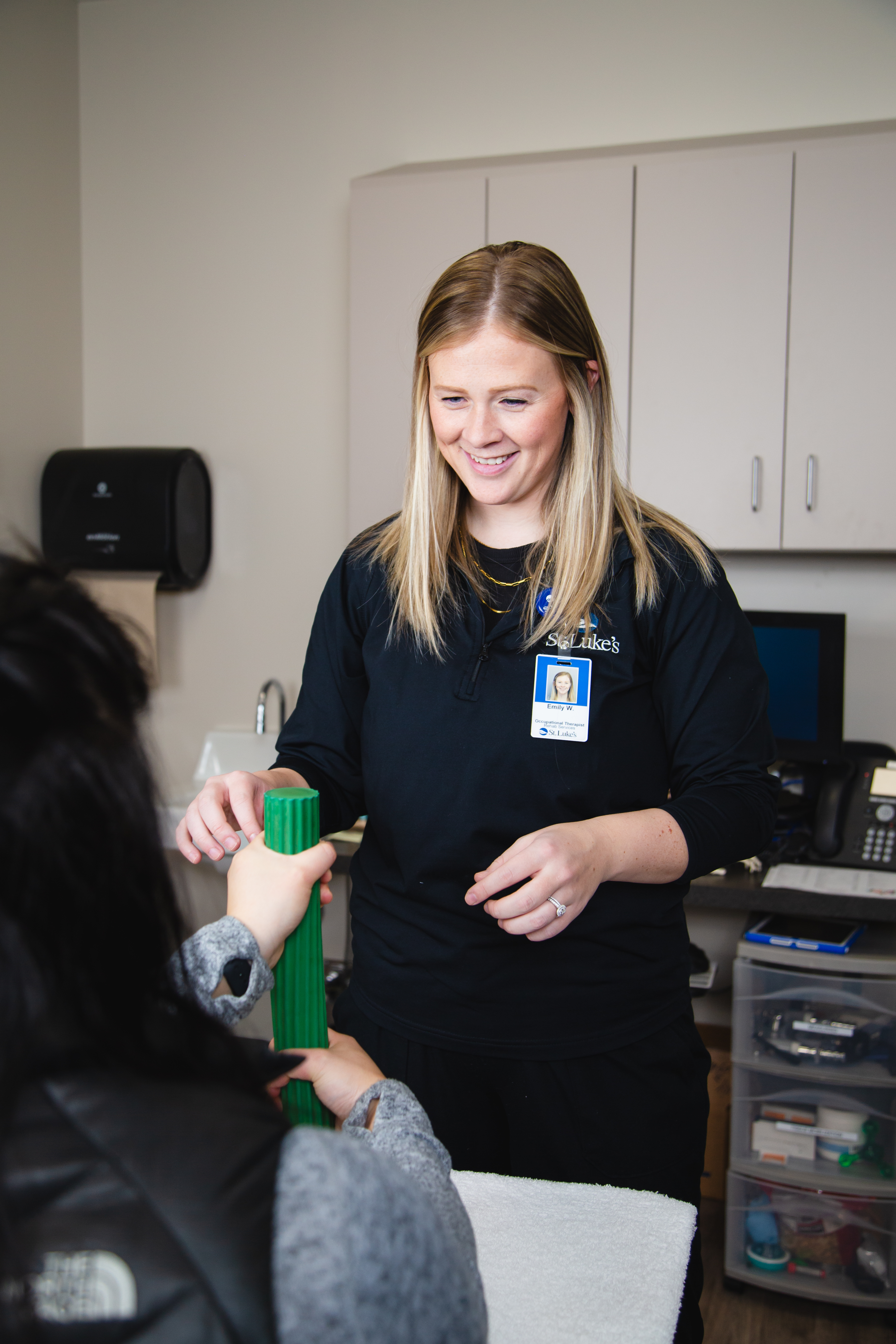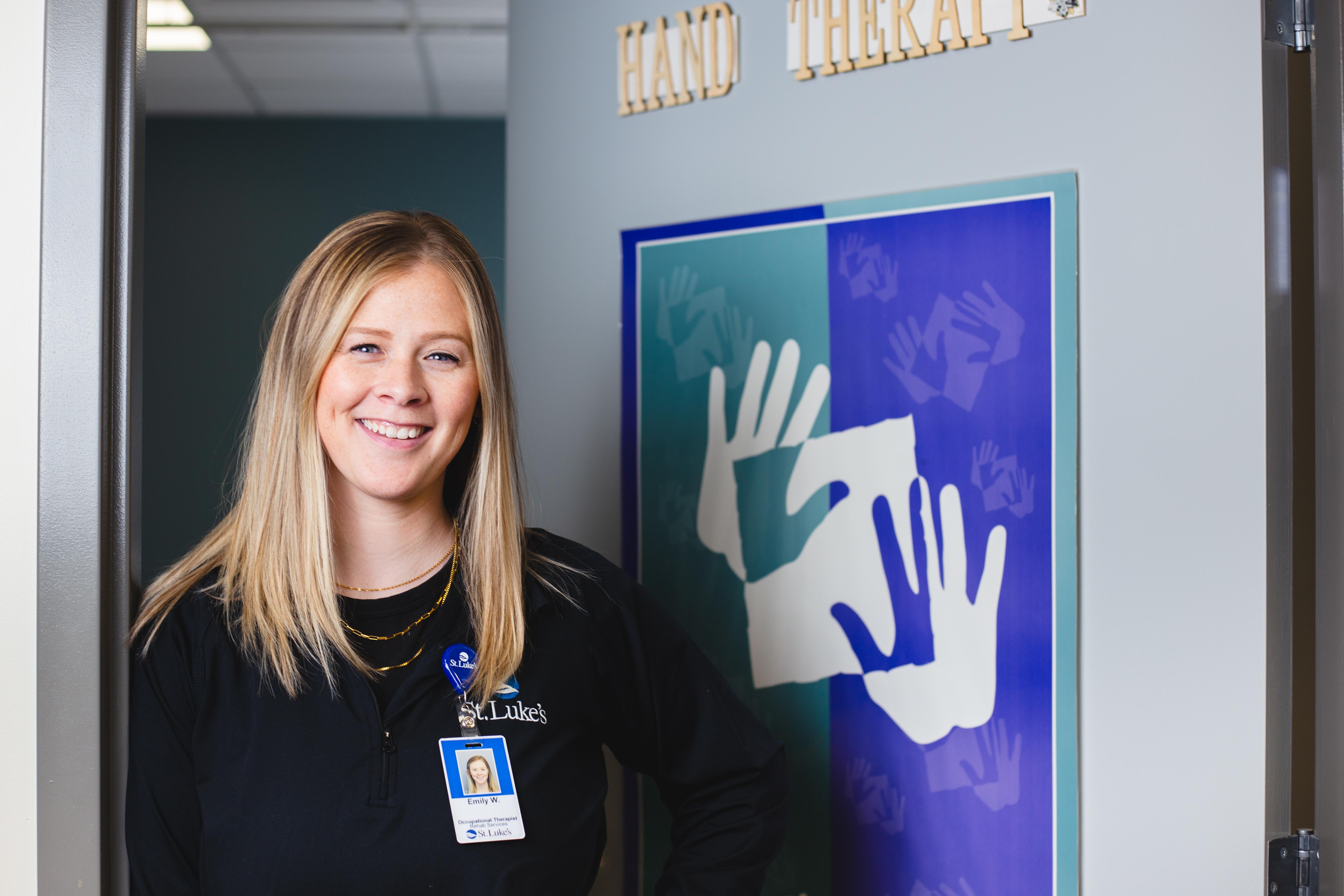Hand Therapy for Healing and Relief

Occupational therapy for shoulder, arm, elbow and hand issues in Duluth
Imagine doing your daily tasks without the full use of your arms or hands. This would make life frustrating at best, and nearly impossible at worst. For many, this is their reality. But it doesn’t have to be.
“Patients usually come to me when they are really struggling to complete normal activities of daily living and their injury or condition is limiting their independence,” said St. Luke’s Occupational Therapist Emily Whiting, MS, OTR/L. “However, what a lot of people don't know is that they can get help long before this happens.”

Hand therapy is a type of occupational therapy that address a wide range of conditions, affecting anything from the shoulder down to the fingertips. That includes:
- Burn recovery
- Carpal tunnel
- Fractures
- Ligament injuries
- Nerve injuries
- Tendonitis
- Wrist sprains
- And more!

To begin the treatment process, a patient will be scheduled for an initial assessment. During this appointment, a personalized treatment plan is developed. Treatment can include things like stretching, therapeutic ultrasound, splinting, strengthening, massage and dry needling. At-home activities are also incorporated into the patient’s routine, promoting long-term recovery.
Following this, patients are scheduled for a series of appointments with their occupational therapist. These sessions are designed to implement the treatment plan and monitor their progress.

“I love my job and it is quite rewarding,” said Emily. “Patients are so thankful when their pain starts to disappear, their hand or arm feels stronger, and when they can begin doing normal tasks again.”
If you’re experiencing any issues, addressing it sooner than later is always best. This includes pain, weakness or tightness.
Referral required for this service. If you need one, talk to your primary care provider. To establish care with a St. Luke’s primary care provider, call 218.249.4000 or find a clinic near you.

